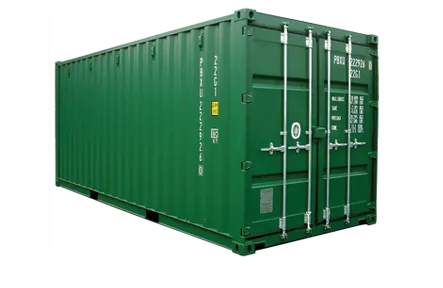
Fractional ownership or usage of products has been delivered as a concept many times in the past, but it became a reality only after blockchain technology allowed the opportunity to tokenize any underlying asset. Presently, plenty of blockchain projects are exploring the possibility of tokenizing the world's real estate; this can potentially open up opportunities in one of the largest industries in the world. Now, a new blockchain project, Blockshipping, is looking towards another major industry where fractional service usage could lead to a wave of cost reductions for small entrepreneurs.

As the name hints, Blockshipping is targeting the shipping industry; the company's main intent is to offer efficiency in container shipping and its main target market is major B2B clients. However, I believe the infrastructure being developed could allow small entrepreneurs to purchase fractional space on a container, and to collectively reduce the shipping cost for all those who join a pool.
The Opportunity at Hand
Blockshipping is developing the Global Shared Container Platform. The company aims to develop a record for the real-time position of every container while also facilitating shipping related transactions. This makes way for an opportunity: since the company will have data on every container, will know the max capacity and vacant capacity of each container, and has the ability to provide transactions via native tokens, it can leverage these combined factors to make way for convenient fractional utility of containers.

Blockshipping will be able to display data on vacant capacity; this allows others in need of container space to utilize tokens and pool the payment for the whole container. This creates a massive layer of efficiency as the blockchain will provide a trustless, secure ecosystem and small, medium, and large businesses could conveniently utilize vacant space in any container. The power of a platform presenting real-time data is that in case of booking changes, last minute vacant capacity would be visible and could be allocated to the platform's users. The amount container space could be rented out even in fractions. This maximizes the utility of any container, thereby lowering the aggregate costs in the industry.
Shipping costs remain high for many small businesses. As small businesses do not have the sales volume to place orders for entire containers, they pre-book small spaces at very high costs. However, if a single platform can hone a mass userbase of small businesses and can provide them with container data as-well-as tokens to purchase the space, sums of small businesses could easily and conveniently pool together and seamlessly lower their aggregate costs as they'd collectively pay the bulk pricing of a full container.

Traditionally, the above situations won't be feasible as a large number of transactions would be taking place with an underlying value that is to be derived over a long period of time. However, the issue is waived as blockchain technology not only provides a medium for the transactions, but also ensures that the data attached to the payment remains unchangeable. This way no one can tamper with the right of ownership of space in a container or the containment. This, coupled with Blockshipping's container register's ability to provide real-time data about container vacancies, paves the way for a future where rising entrepreneurs can utilize fractional container space at low costs.
Essential Blockshipping Links
🌐 Website: https://www.blockshipping.io/
💡 Whitepaper: https://www.blockshipping.io/wp-content/uploads/2018/02/Blockshipping_GSCP_ICO_White_Paper_public.pdf
👨 ANN Thread: https://bitcointalk.org/index.php?topic=3502572.0
💻 Telegram: https://t.me/joinchat/HWi2Gw9VvUw1U5lZObNS2w
⌚️ Token Sale: LIVE NOW
Connect with me:
https://bitcointalk.org/index.php?action=profile;u=1700741;sa=summary
@hatu – Follow for a new ICO analysis every day!
Twitter
Telegram Group – Keep up with ICOs
